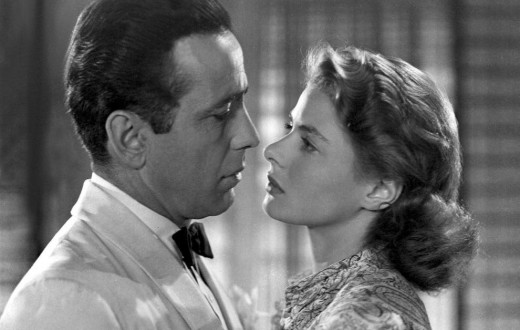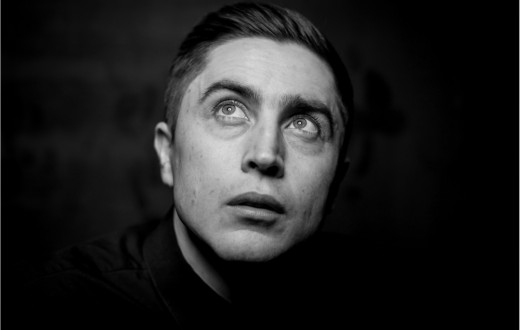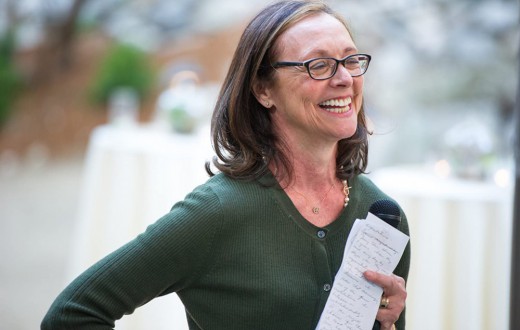“Now what I have worked out is that it would actually be physically impossible to be perfect for everyone. Everyone has a distinct idea in their head of what each character is like. So I’ve kind of had to lower my standards. I can’t be perfect for everyone.”
– Emma Watson, on playing Hermione.
As actors, we love to entertain people. We are the weirdoes who take joy in getting up in front of people and playing a role, singing a song, doing a little dance, whatever – we crave the spotlight, and we love the attention. That’s not to say that that’s the only reason we love acting, just that it is undeniably one component.
It’s important to keep in mind that most people aren’t like this. Did you know that public speaking is consistently the number one fear of the vast majority of people? Like, they are more afraid of public speaking than an airplane crash or being hit by lightning.
Try getting an actor to STOP speaking in public!
But there’s something else that is very common among actors and those who have a love of performing: an unhealthy perfectionism.
What psychologists term “maladaptive perfectionism” is evidenced by excessive preoccupation with past mistakes, fears about making new mistakes that often turn into anxiety, and extreme self-doubt. These feelings can manifest in a variety of ways, including severe pre-performance stress, even to the point of getting sick, or constantly asking others for reassurance that the work you are doing is good.
Sound familiar? We all probably know someone in the acting community or we ourselves have experienced periods of our careers where we felt these kinds of things, at least to some small degree. So how can we overcome these feelings and avoid getting bogged down in the negativity of perfectionism? Here are a few ideas.
1. Honest Self-Assessment
Working in such a competitive, demanding business doesn’t make it any easier to get past the negative effects of perfectionism. We are constantly assaulted with imagery showing stars with perfect (airbrushed) bodies and faces, negative 3 percent body fat, and glittering teeth that could blind a trucker from a thousand yards away on a night highway. How are we (semi-) normal people supposed to compete in this world? Well the first thing to remember is that we are all unique, and we are all necessary to creating beautiful works, no matter our body type, our skin color, or our (highly subjective) attractiveness. That is to say, there’s only one leading man or leading woman in most movies, and somebody’s got to play the rest of the roles! So a good place to begin shedding the yoke of perfectionism is to take an honest look in the mirror. Not only what age range can you realistically play, but what “ethnic range,” (not that it should matter, but sometimes it does, when a project is looking for a specific type to fill a role.) Also, assess your physicality, and along with it, the types of characters that are in your wheelhouse. That’s not to say that a burly, tough-looking, muscular guy CAN’T be a computer hacker, in fiction or in real life for that matter, just that usually directors and CDs are going to be looking for something more along the lines of a skinny, bespectacled “nerd” type. Knowing yourself, and where you can hit it out of the park is vital to succeeding. This also applies to your affect, or what sort of vibe you project. Yes, a cheerful, funny, quirky type usually ends up playing the lead in rom-coms. But these films often also need a brooding, grumpy, hostile antagonist to play opposite. Knowing where you fit, and how others see you is your key to the kingdom.
2. Marketing
Now that you’ve got a solid idea of who and what you are in terms of how the industry is likely to perceive you, market that biz! Get yourself a set of headshots that highlight the types of roles you are most suited for. If you kill it at playing a giggly, silly best friend, you might not benefit too much from headshots that portray a dour, sunken-cheeked supermodel look. Your headshot is a storytelling device, but you have just moments to tell it the way you want it to be heard. When CDs bring you in to read based on your headshot, they aren’t looking for something that wildly contradicts what that photo put into their minds. Same goes for your demo reel: find and highlight pieces that are consistent with your “wheelhouse” type of roles. Yes, of course we all have a range that plays outside of those roles, and of course we cherish the opportunity to push our boundaries. But the goal here is to focus in on what you are really good at, and what is going to best sell you to a CD or a producer. This is another way to escape perfectionism: embrace what you got, and stop worrying about what you don’t.
3. Training
Fear of failure – aka perfectionism – is fear. It’s right there in the sentence. And the one solid cure for fear of failure is practice, practice, practice. This applies not only to when you are working on a particular project, but also to your general training as an actor. The more you do something, the more comfortable you become doing it. Take as many classes as you can, be it scene study, technique, monologue work – you name it. Set up an actor’s group to read and perform together on nights when you don’t have a class. Another great and often overlooked gift for the actor who is seeking to overcome a debilitating perfectionism is improv work. There is nothing like the revelation you get after doing some improv classes or performances when you realize that there is no right, and there is no wrong, and there is therefore no such thing as perfect. Every “mistake” to the well-versed improv actor is an opportunity. This is a mindset, and more so it is a “mind reset” that is vital to giving up perfectionism’s uglier side. Watch Stephen Colbert perform sometime. His background in improv gives him a fluidity and freedom and fearlessness about whatever might happen next that is incredible to watch, whether it be in interviews or in his stand-up bits. His entire career is a highwire act by someone who cares not a single damn that he is up on that wire. As actors we could do worse than to adopt his (highly successful) brand of thinking and performing.
4. Lighten Up
As Q’Orianka Kilcher said, of playing Pocahontas in “The New World,” she learned a valuable lesson from Colin Farrell on how to let go of her perfectionist ways: “He taught me acting wasn’t about being perfect. An actor should never take themselves too seriously. It took a burden off my shoulders.” Mistakes happen, in other words. Especially in an organic and very human endeavor like acting. We could all probably benefit from taking ourselves a little less seriously! That’s not to say you should cut corners or skimp on the work. Just that smacking yourself in the head every time you flub a line isn’t making it any easier on yourself, nor on your co-workers. A certain ease and understanding that this is a business fraught with opportunities for error – or, better attitude, simply “opportunities for something unexpected” – is a valuable quality to bring with you to set or to the stage. And your CDs, directors, producers and fellow actors will remember you more for that than they will remember that you were the guy who never once flubbed a line.







